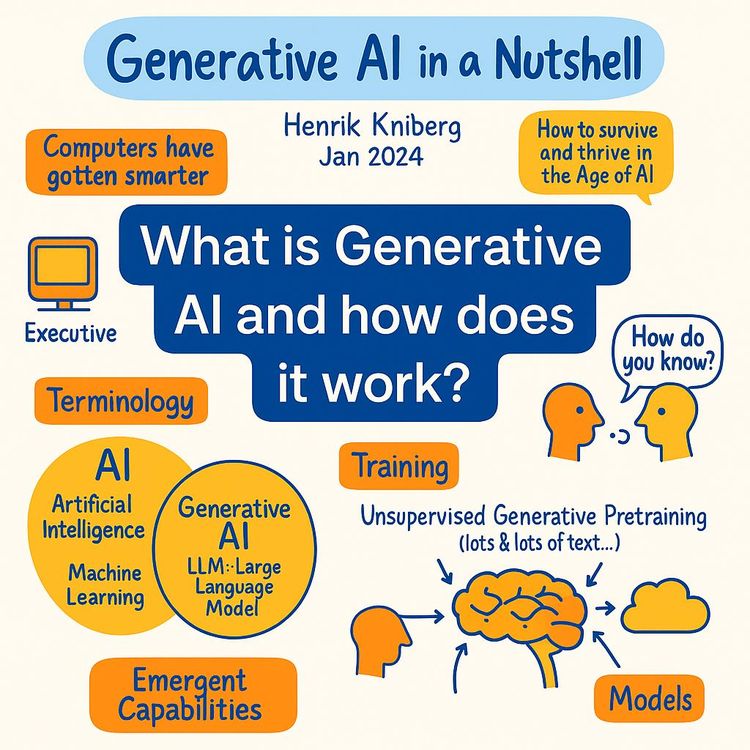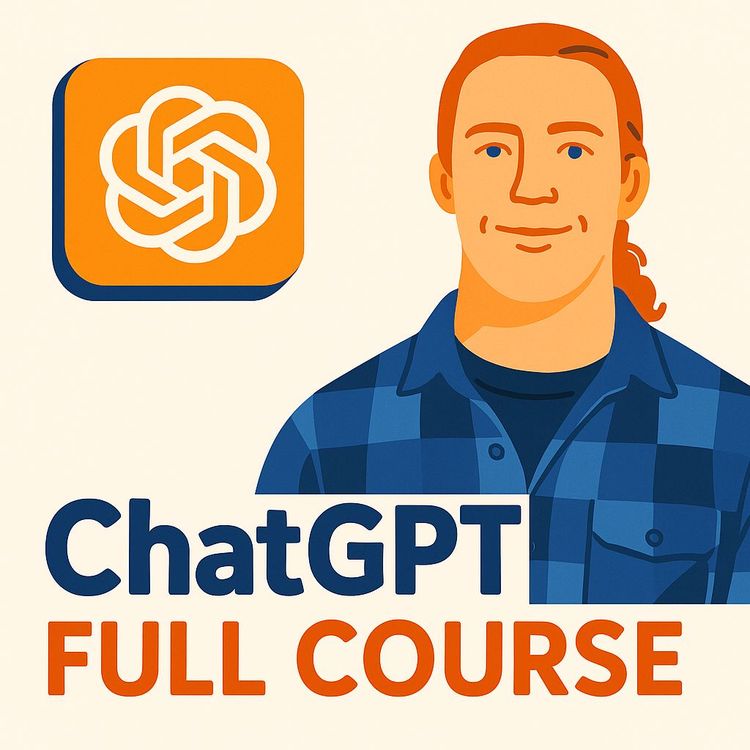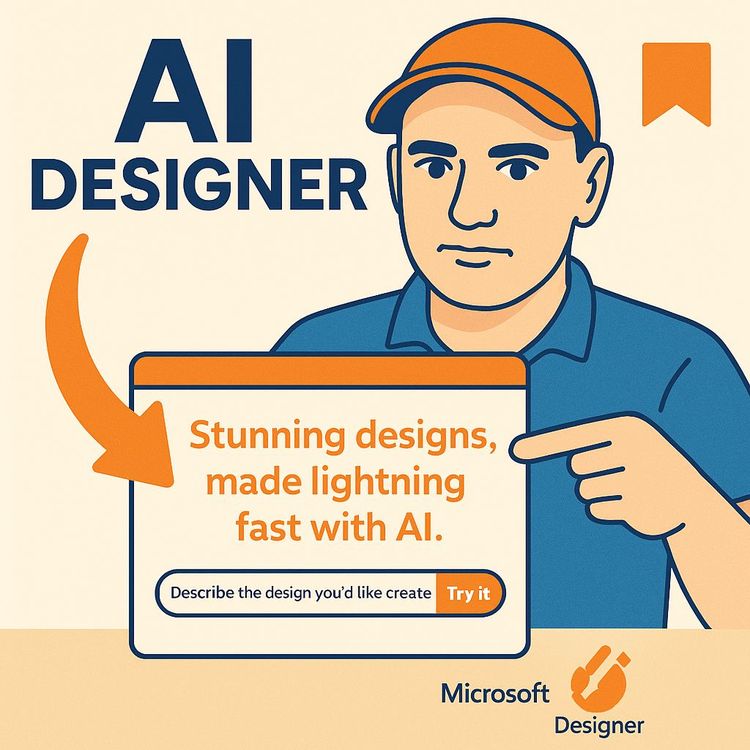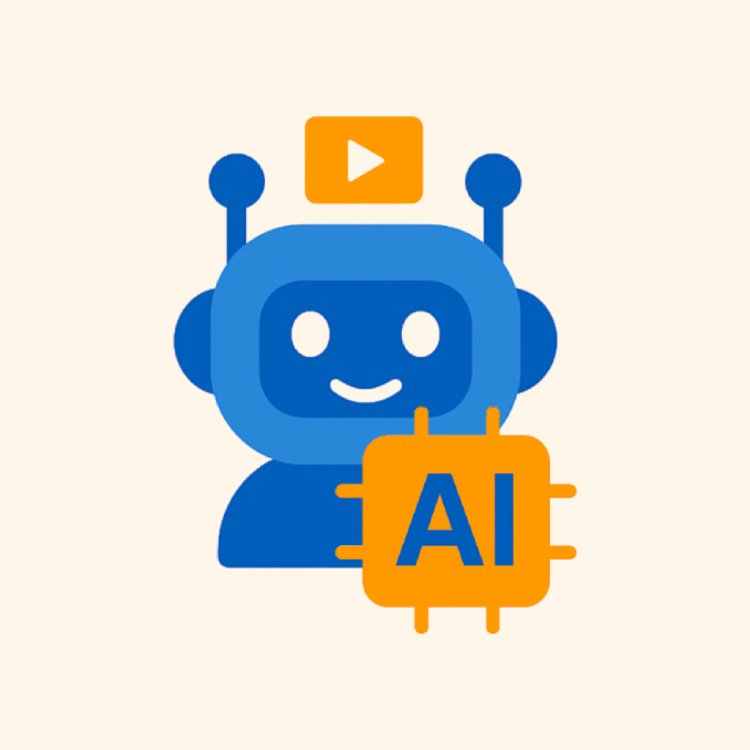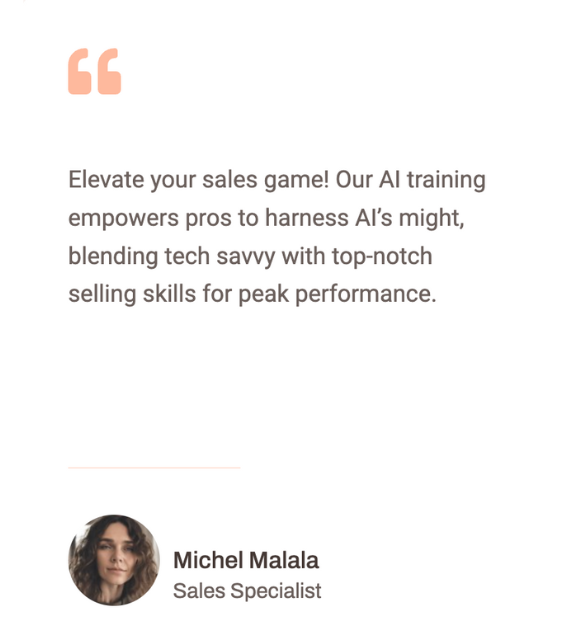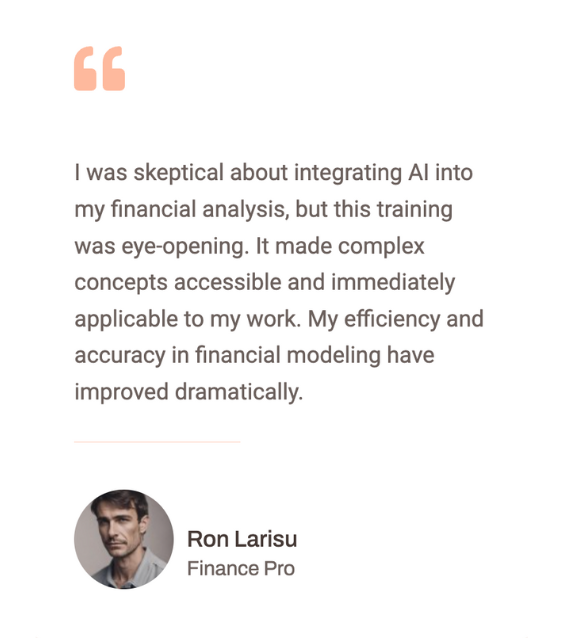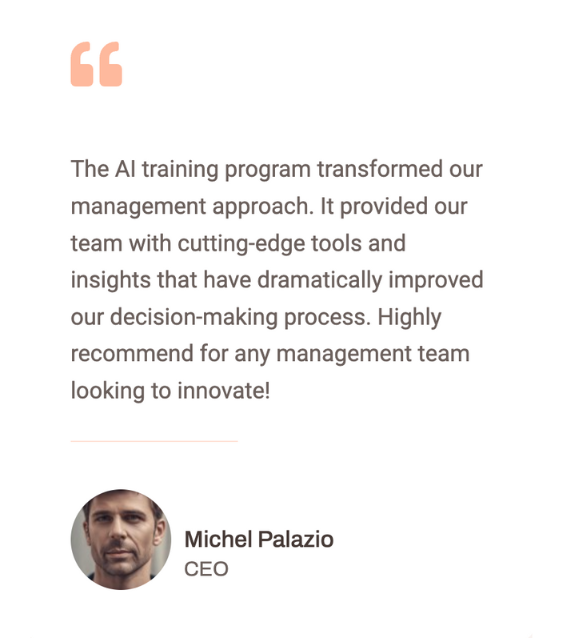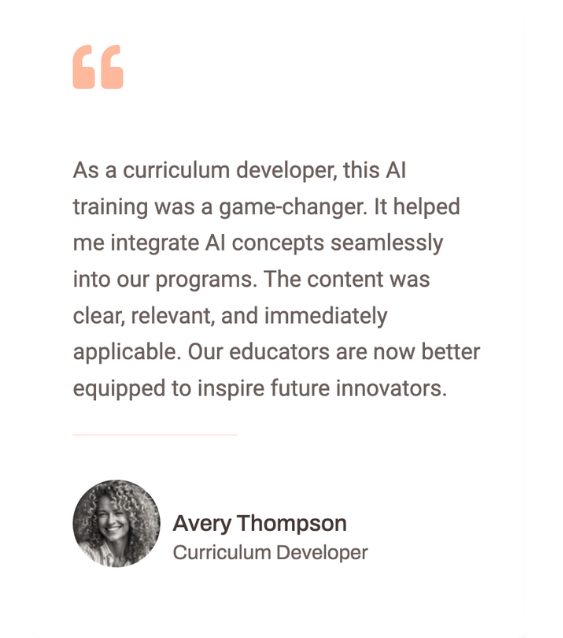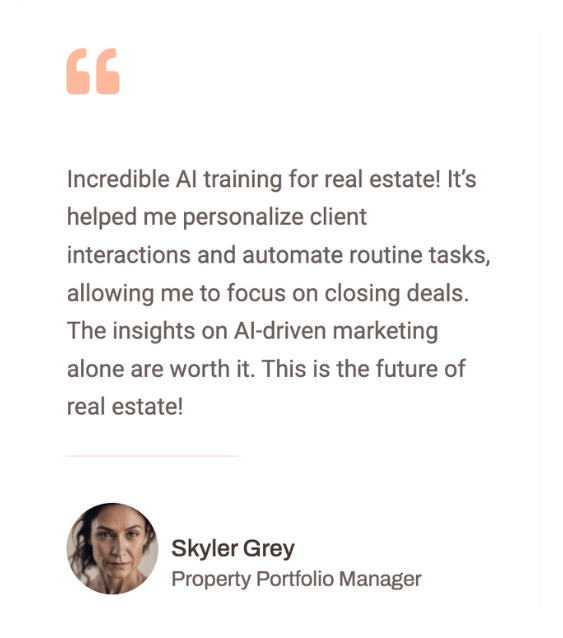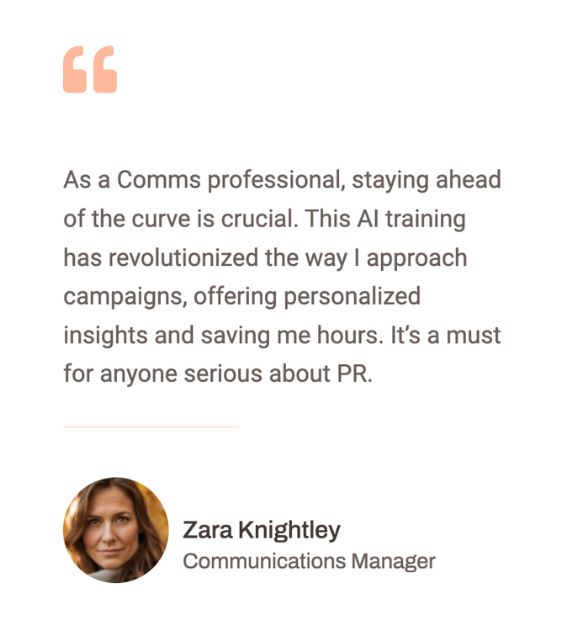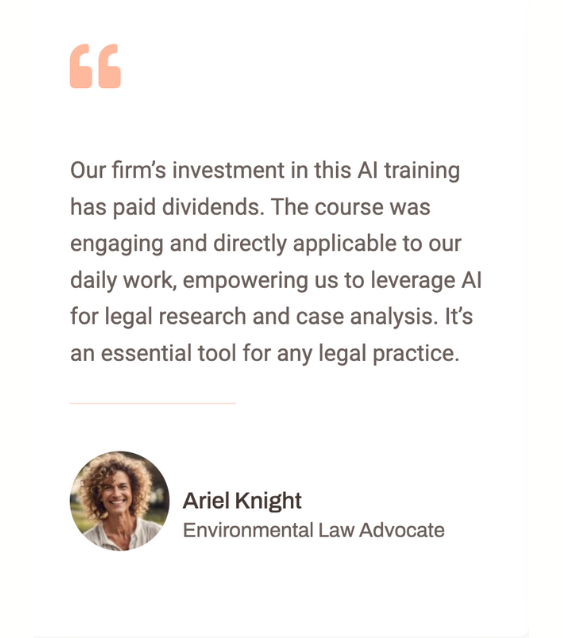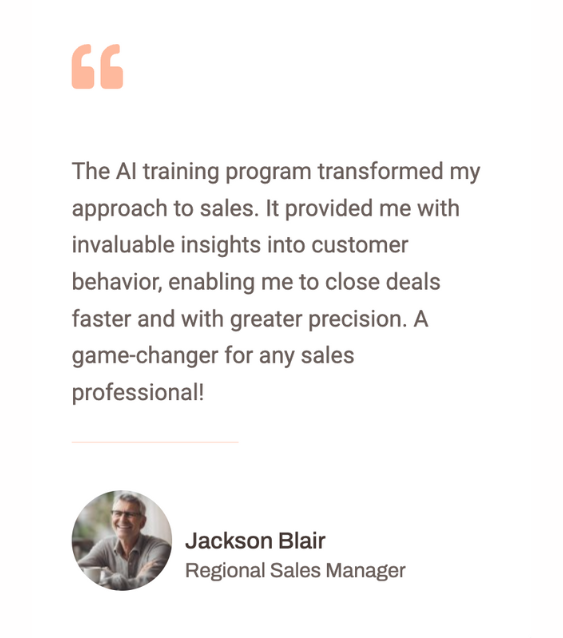Video Course: Become an AI Product Manager in 2025
Dive into the world of AI Product Management with our comprehensive course. Equip yourself with essential skills and strategic insights to excel in this high-demand field, bridging AI technology with real-world solutions.
Related Certification: Certification: AI Product Management Skills for Future-Ready Professionals
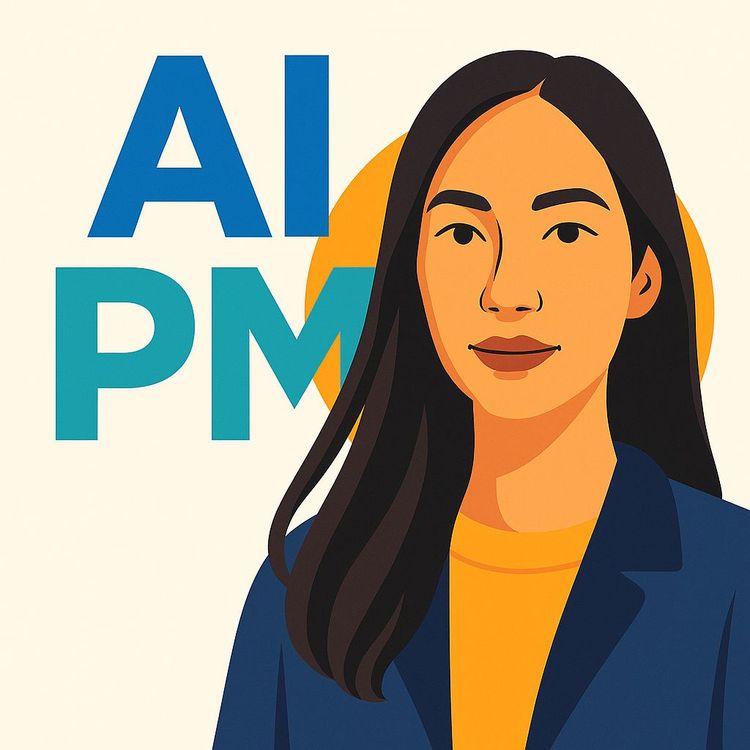
Also includes Access to All:
What You Will Learn
- Core responsibilities of an AI Product Manager and how they differ from traditional PMs
- How to design and build AI products through hands-on projects and pivots
- Practical approaches to data sourcing, ethics, and stakeholder alignment
- How to prepare and tell compelling interview stories about AI product work
Study Guide
Introduction
Welcome to the comprehensive guide on becoming an AI Product Manager. This course is designed to equip you with the knowledge and skills necessary to excel in the field of AI Product Management. As AI continues to transform industries, the demand for skilled AI Product Managers has surged, offering lucrative opportunities for those ready to take on the challenge. This guide will walk you through the essential concepts, practical applications, and strategic insights needed to transition into this rewarding career.
Understanding the AI Product Manager Role
The role of an AI Product Manager (AI PM) is pivotal in bridging the gap between AI technology and product development. Unlike traditional PM roles, AI PMs focus on integrating AI solutions to solve real-world problems. This requires a blend of technical understanding, strategic vision, and customer-centric problem-solving skills.
High Demand and Compensation:
AI PM roles are highly sought after, commanding salaries approximately 30% higher than traditional PM positions. However, the barrier to entry remains significant due to the common requirement of prior AI PM experience. This creates a paradox for aspiring AI PMs, as gaining experience is challenging without already being in the field.
Example: Consider a traditional PM with years of experience in software development. Transitioning to an AI PM role involves not only understanding AI technologies but also demonstrating their application in product development. This requires hands-on experience, which we'll explore further in this guide.
The Journey of Cine Soh
Cine Soh's transition from a traditional PM to a leading AI PM exemplifies the challenges and strategies involved in this career shift. After being laid off, Cine navigated the competitive job market to secure a role as the sole AI PM in her company.
Layoff to Lead AI PM:
Cine's journey underscores the importance of resilience and strategic planning. Despite the setback of being laid off, she leveraged her existing PM skills and sought new opportunities in the AI domain.
Example: During her job search, Cine focused on acquiring hands-on AI experience, which proved crucial in distinguishing her from other candidates. Her story highlights the need for practical experience and a proactive approach to learning.
Mindset Shift and Support Systems
Transitioning to an AI PM role requires a significant mindset shift. Cine found value in seeking guidance from a career mentor and a therapist to navigate the emotional and professional challenges of her job search.
Importance of Support:
A career mentor can provide clarity on career goals and decision-making processes, while therapy can help rebuild confidence. These support systems are vital for maintaining motivation during challenging times.
Example: By understanding her strengths and areas for improvement through personality tests and mentorship, Cine was better equipped to position herself as a strong candidate for AI PM roles.
Hands-on AI Experience
Theoretical knowledge of AI is insufficient for breaking into AI PM roles. Practical, hands-on experience is essential to stand out to employers. Cine participated in a product manager accelerator course for AI PMs, where she worked with a team to build an AI product.
Gaining Practical Experience:
Working on real AI projects provides invaluable insights into data sourcing, problem-solving, and product iteration. This experience is crucial for demonstrating practical application skills to potential employers.
Example: In her course, Cine encountered challenges related to data sourcing, which became key talking points in her interviews. This hands-on experience allowed her to articulate her problem-solving skills effectively.
Connecting Technology to Problem Solving
Understanding how AI can solve real-world problems is a critical skill for AI PMs. Theoretical courses often lack this contextual link, which is why practical experience is so valuable.
Problem-Solving with AI:
AI PMs must be adept at identifying problems and selecting appropriate AI technologies to address them. This requires a deep understanding of both the technology and the user needs.
Example: Cine's ability to pivot her product idea based on customer feedback and data limitations demonstrated her strategic thinking and adaptability, which impressed her interviewers.
Building AI Products
The process of building an AI product involves encountering and overcoming challenges, such as data sourcing. These experiences are highly relevant in AI PM interviews and can set candidates apart.
Learning from Experience:
Building an AI product provides real-world problem-solving experiences that theoretical learning cannot match. These experiences are invaluable during interviews, as they demonstrate a candidate's ability to apply AI technologies effectively.
Example: Cine's product pivot based on customer interviews showcased her ability to adapt and innovate, qualities that are highly valued in AI PM roles.
The Shifting Landscape of AI Product Management
The rapid advancements in AI and the accessibility of no-code tools are levelling the playing field for aspiring AI PMs. Traditional PM experience and company brand are becoming less dominant factors in securing AI PM roles.
Democratising Innovation:
AI technologies allow individuals to build and test product ideas without needing large teams or extensive development experience. This shift is creating new opportunities for those with practical AI skills.
Example: Cine's success despite competing against candidates from prestigious companies highlights the importance of hands-on experience and problem-solving abilities in the AI PM job market.
AI PM Interview Focus
AI PM interviews often focus on problem-solving skills, challenges faced during product development, understanding the target audience, and demonstrating a passion for continuous learning in the rapidly evolving AI landscape.
Interview Preparation:
Candidates should be prepared to discuss their experiences with building AI products, the challenges they encountered, and how they overcame them. Demonstrating a structured approach to problem-solving is crucial.
Example: In interviews, Cine was asked about the problems she faced during product development and how she addressed them. Her ability to articulate these experiences effectively set her apart from other candidates.
Coding and Technical Skills
While a technical background can be helpful, coding is not a prerequisite for becoming an AI PM. Understanding the AI ecosystem and collaborating effectively with technical teams are more critical.
Collaborative Skills:
AI PMs should focus on leveraging AI tools and understanding the broader AI landscape. Effective collaboration with technical teams is more important than coding skills.
Example: Cine's experience as a former software developer helped her understand her team's work, but she emphasized that coding was not necessary for her role as an AI PM.
Growth Mindset and Continuous Learning
Success in AI PM requires a growth mindset and a commitment to continuous learning. Practicing skills like customer interviewing and understanding cross-functional collaboration are crucial.
Embracing Change:
The AI field is constantly evolving, and AI PMs must be proactive in learning about new technologies and their applications. A growth mindset is essential for staying competitive.
Example: Cine's dedication to learning and adapting to new AI technologies played a significant role in her successful transition to an AI PM role.
Practical Advice for Aspiring AI PMs
For aspiring AI PMs, gaining hands-on experience through personal projects or specialized courses is crucial. Demonstrating a proactive attitude towards learning about new AI technologies and applying them to solve customer needs is essential.
Building Experience:
Cine advises aspiring AI PMs to "just build something," even if it's a small tool, to gain practical experience. This approach helps overcome the "experience paradox" and prepares candidates for AI PM interviews.
Example: By building AI products and documenting her learning experiences, Cine was able to impress potential employers and secure her role as an AI PM.
Conclusion
Congratulations on completing this comprehensive guide to becoming an AI Product Manager. You now have a solid understanding of the key concepts, practical applications, and strategic insights needed to excel in this field. Remember, the journey to becoming an AI PM is challenging but rewarding. By applying the skills and knowledge gained from this course, you can successfully transition into this exciting career and contribute to the future of AI-driven innovation.
Podcast
There'll soon be a podcast available for this course.
Frequently Asked Questions
Introduction
Welcome to the FAQ section for the 'Video Course: Become an AI Product Manager'. This resource is designed to provide clear and concise answers to common questions about transitioning into the role of an AI Product Manager. Whether you're just starting your journey or looking to deepen your expertise, these FAQs aim to support your learning path with practical insights and real-world examples.
Why is becoming an AI Product Manager (PM) considered a challenging but highly rewarding career transition?
The role of an AI PM is currently one of the most demanding in the market, often commanding a salary 30% higher than traditional PM roles.
However, many PMs find it difficult to transition into AI PM positions primarily because most job openings require prior AI or PM experience. This creates a significant hurdle for experienced PMs seeking to enter this rapidly evolving field.
What key steps did a successful AI PM take to overcome the challenges of transitioning into this field, especially after a period of unemployment?
Cine, the interviewed AI PM, highlighted several crucial steps. Firstly, seeking guidance from a career mentor helped to clarify her career goals and understand her natural work ethic and decision-making processes.
Therapy also played a vital role in rebuilding confidence after a challenging job search. Crucially, she recognised the need for practical AI experience and enrolled in a product manager accelerator course focused on AI, which provided hands-on experience and the opportunity to work with a team.
How important is hands-on experience versus theoretical knowledge when aiming to become an AI PM?
The interview strongly emphasises the critical importance of hands-on experience.
While theoretical knowledge from AI courses is helpful, it often lacks the context needed to understand how to apply the technology to solve real-world problems. Working on actual AI product development within a team, encountering and overcoming challenges related to data sourcing and implementation, provides invaluable "aha" moments that theoretical learning alone cannot deliver. Employers, particularly those already having PMs, are looking for candidates who can demonstrate practical application of AI, not just theoretical understanding.
Can you provide an example of how hands-on experience in AI product development led to a significant learning moment and how this benefited the interviewee in their job search?
While working on a project to help BIPOC-owned small businesses, the team initially focused on a customer-facing solution for finding these businesses. However, through voice customer interviews, they realised the core problem was that small businesses lacked the resources and tools to reach their customers effectively.
This pivot, driven by real-world feedback, led them to explore AI technologies like recommendation systems to help businesses understand their competitors' digital presence and improve their own outreach. Discussing this real-world problem-solving experience, including the challenges of data sourcing and the iterative approach, impressed interviewers and set the candidate apart.
How can AI technologies specifically empower small businesses, according to the interviewee's experience?
The AI product concept developed aimed to address the challenge small businesses face in reaching their target audience. By using AI-powered recommendation systems, the product could analyse the digital presence of successful competitors in the same industry and location, providing personalised insights and suggestions to small businesses on how to improve their own online engagement.
This includes suggesting types of social media posts or identifying platforms where they should have a stronger presence.
The interviewee suggested that years of traditional PM experience and the prestige of previous employers may be becoming less significant in the context of AI. Why might this be the case?
The rapid evolution of AI and the accessibility of no-code/low-code tools are democratising innovation. Individuals can now build and test AI-powered product ideas without needing large teams or extensive traditional development experience.
Because AI is a relatively new field for many companies, even those with long-standing PM experience in non-AI domains may lack the practical, hands-on understanding of AI application. This levels the playing field, making demonstrable experience with building and problem-solving with AI more valuable than traditional PM tenure or company pedigree.
What types of interview questions are common in AI PM interviews, and what approach is recommended for answering them effectively?
AI PM interviews often focus on problem-solving, adaptability, and a genuine passion for AI. Interviewers are keen to understand the challenges candidates have encountered while building AI products, how they approach problem definition, their understanding of the target audience, and their ability to take a product from concept to launch.
Given the novelty of AI for many companies, demonstrating an organised approach to problem-solving and a continuous curiosity to learn about and apply the latest AI technologies is crucial, rather than just reciting technical jargon.
Is coding knowledge a prerequisite for becoming an AI PM?
According to the interviewee's experience, coding skills are not a necessary prerequisite for becoming an AI PM. While having a technical background can be beneficial for understanding the team's work, the focus for an AI PM is more on leveraging AI tools, understanding the AI ecosystem, effectively collaborating with technical teams, and solving problems for customers using AI.
A strong interest in learning about new AI technologies and their potential applications is more valuable than being able to code.
What advice would you give to traditional PMs looking to transition into AI Product Management?
Traditional PMs should focus on gaining hands-on experience with AI technologies through project-based learning or accelerator programs. Engaging with AI communities, attending workshops, and collaborating on AI projects can provide practical insights and skills.
It's also beneficial to develop a strong understanding of AI ethics, data privacy, and the potential impact of AI on different industries.
What are some common misconceptions about AI Product Management?
A common misconception is that AI PMs need to be AI experts or data scientists. While technical knowledge is helpful, the primary role of an AI PM is to bridge the gap between technical teams and business goals, ensuring that AI solutions effectively address user needs.
Another misconception is that AI can solve any problem; in reality, AI applications require careful consideration of data quality, ethical implications, and alignment with business objectives.
What are some practical applications of AI in product management?
AI can enhance product management by providing data-driven insights, automating routine tasks, and personalising user experiences. For example, AI can analyse customer feedback to identify trends, optimise pricing strategies, or recommend features based on user behaviour.
In product development, AI can assist in prototyping and testing, reducing time to market and improving product quality.
What are common obstacles AI PMs face and how can they overcome them?
AI PMs often encounter challenges such as data privacy concerns, integration with legacy systems, and aligning AI solutions with business goals. To overcome these obstacles, it's essential to maintain open communication with stakeholders, prioritise ethical considerations, and ensure the team has access to quality data.
Continuous learning and adapting to new AI advancements also help in addressing these challenges effectively.
How important is a growth mindset for an AI Product Manager?
A growth mindset is crucial for AI PMs as it encourages continuous learning and adaptation in a rapidly evolving field. Embracing challenges, learning from feedback, and viewing failures as opportunities for growth can significantly enhance an AI PM's ability to innovate and lead successful projects.
This mindset fosters resilience and creativity, essential traits for navigating the complexities of AI product development.
What are some challenges related to data sourcing for AI projects?
Data sourcing challenges include ensuring data quality, addressing privacy concerns, and obtaining data that accurately represents the target audience. AI PMs need to collaborate with data scientists and engineers to identify reliable data sources and implement robust data governance practices.
Additionally, understanding the limitations and biases of data is crucial to developing fair and effective AI solutions.
How are no-code tools impacting the role of AI Product Managers?
No-code tools are democratizing AI development by allowing non-technical users to create AI applications. This empowers AI PMs to prototype and test ideas quickly, reducing dependency on technical teams and accelerating innovation.
However, AI PMs must still ensure that no-code solutions align with business goals and meet quality standards, requiring a balance of creativity and strategic thinking.
What role does stakeholder management play in AI product management?
Stakeholder management is critical in AI product management as it involves aligning diverse interests and expectations. AI PMs must communicate effectively with stakeholders, including executives, technical teams, and customers, to ensure that AI solutions meet business objectives and user needs.
Building strong relationships and fostering collaboration are essential for navigating the complexities of AI projects and achieving successful outcomes.
Why is understanding AI ethics important for AI Product Managers?
AI ethics is vital for ensuring that AI solutions are developed and deployed responsibly. AI PMs must consider the ethical implications of AI applications, such as bias, privacy, and transparency, to build trust with users and stakeholders.
By prioritising ethical considerations, AI PMs can mitigate risks and enhance the positive impact of AI on society.
How can AI PMs stay updated with the latest AI trends and technologies?
AI PMs can stay informed by following industry publications, attending conferences, and participating in online courses and webinars. Engaging with AI communities and networking with other professionals can also provide valuable insights and opportunities for learning.
Continuous learning is essential for AI PMs to remain competitive and effectively leverage AI advancements in their projects.
Can you provide a real-world example of a successful AI product managed by an AI PM?
One example is an AI-powered recommendation system for an e-commerce platform. The AI PM led a cross-functional team to develop a solution that analysed customer behaviour and preferences to personalise product recommendations.
This resulted in increased customer engagement and sales, demonstrating the value of AI in enhancing user experience and business outcomes.
Certification
About the Certification
Show the world you have AI skills—gain expertise in AI product management, from strategy to launch. This certification sets you apart as a professional ready to lead innovative projects in tomorrow’s technology landscape.
Official Certification
Upon successful completion of the "Certification: AI Product Management Skills for Future-Ready Professionals", you will receive a verifiable digital certificate. This certificate demonstrates your expertise in the subject matter covered in this course.
Benefits of Certification
- Enhance your professional credibility and stand out in the job market.
- Validate your skills and knowledge in cutting-edge AI technologies.
- Unlock new career opportunities in the rapidly growing AI field.
- Share your achievement on your resume, LinkedIn, and other professional platforms.
How to complete your certification successfully?
To earn your certification, you’ll need to complete all video lessons, study the guide carefully, and review the FAQ. After that, you’ll be prepared to pass the certification requirements.
Join 20,000+ Professionals, Using AI to transform their Careers
Join professionals who didn’t just adapt, they thrived. You can too, with AI training designed for your job.

